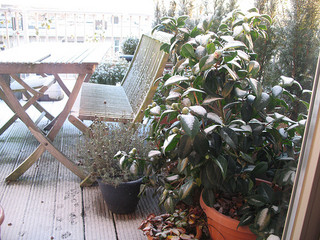Poetry Editor John Hennessy will be reading for Ashland Poetry Press from his new collection, Coney Island Pilgrims, at this year’s AWP Conference in Boston.
Thursday, March 7, 3 PM
Patricia Olson Bookfair Stage, Exhibit Hall A, Plaza Level, BF17
Poetry Editor John Hennessy will be reading for Ashland Poetry Press from his new collection, Coney Island Pilgrims, at this year’s AWP Conference in Boston.
Thursday, March 7, 3 PM
Patricia Olson Bookfair Stage, Exhibit Hall A, Plaza Level, BF17
This time of year, I’m always hoping for one last snowstorm or cold snap. I love winter, and am always sad to see it go. To give the season a proper goodbye, these links celebrate all things cold things cold and snowy:
By SCOTT GEIGER
1.
The modern novel is probably an unintended consequence of nineteenth-century European cities. James Wood glosses the idea in his handbook How Fiction Works. The breakthrough narration in Madame Bovary, for instance, a stylish authorial voice that seemingly dissolves into the consciousness of its subjects on a wash of image and detail, corresponds to a boom in European industrial urbanism. Its vector is the flâneur: the young and loitering, the unemployable café-sitters, the arcade-browsers. These onlookers adapted their eyes to the city’s “large, bewilderingly various amounts of detail,” says Wood.
Beyond the bridge of Highway 91, beyond the levee and the last line of houses at the outskirts of town, civilization goes to rural scenes. First you pass a patch of low trees; then a small paddock and barn where two horses live; and then you come to the cornfields — wide, flat, golden and stubbly by the riparian woodland of the Connecticut River. I’ve always wanted to come to these fields to see the stars, but the landscape is lonely, and I would be afraid to come alone at night.
Sampling Thoreau
Part 2: Where I Live and What I live For
Inspired by rereading Thoreau’s Walden for the first time in 30 years, I am writing a series of essays—an attempt to sample Thoreau, and swing the rhythm. I want to honor the young idealist with echoes of his aphoristic style and, at the same time, challenge his lofty ideals with the experience of an older woman. Click here to read Part 1.
In the early years of our marriage, Andy and I used to rent a house for two weeks in the summer in Lubec, Maine, as far Down East as you can go and still be in the U.S. It was a canning town—sardines. We thought of it as a paradise that was our secret. We could ride our bicycles out to lighthouses in two different directions, walk through a bog full of the carnivorous sundew and pitcher plants and cross the bridge to Campobello Island, New Brunswick, where, sitting on the cliffs, we see could see Finback whales spouting and diving on the horizon. When we started going there, only one canning plant was still in operation. The last year we visited, that too was closed. On our walks through town, we found that nearly every other house was for sale; but when it came down to it, we couldn’t buy one. We’d always be from “away,” but we’d lose our status as strangers. And, there were the seven hours of highway between me and my sisters.
Book by VALZHINA MORT
Reviewed by
 In the long prose poem “Aunt Anna” at the heart of Collected Body, the speaker muses, “so evasive is Aunt Anna’s body, it is impossible to hold a thought of it longer than an instant.” Throughout Valzhyna Mort’s first book of poems written in English, rather than translated by the poet and others from Belarusia as in earlier work, the reader finds that sense of commitment to recapture history, and thus the speaker’s own life.
In the long prose poem “Aunt Anna” at the heart of Collected Body, the speaker muses, “so evasive is Aunt Anna’s body, it is impossible to hold a thought of it longer than an instant.” Throughout Valzhyna Mort’s first book of poems written in English, rather than translated by the poet and others from Belarusia as in earlier work, the reader finds that sense of commitment to recapture history, and thus the speaker’s own life.
Often, the point of departure on a journey into the past is the physical body. Gardens of an ancestral village “shrink by perspective into a single bush, as if it were the pubes of a woman, lying flat on her back, naked.” When Aunt Anna later in life walks from Siberia back to a childhood village, the speaker states, “This time she walked there for no man, for no village girl’s dream of the neighboring village; this time she walked for the memory of that pubes, for what it concealed – the source that her mouth was hungry to embrace.” More than only a springboard, a sensuous physiology becomes also the destination and the vehicle that carries Mort, and with her the reader, along on that journey.

excerpt from the ongoing Failures Diary
i go to pick up my kid
at his crèche
that’s a fancy european word
for daycare
When I flew from Johannesburg to Cape Town and drove to Misty Cliffs, which Google described as a little village that lies on the mountain and on the beach, divided only by Main Road, between Kommetjie and Scarborough, roughly an hour from Cape Town, I had no idea what lay ahead. I was insulated in pain from a break up. Ten days of the sea, walking, and writing healed me. This mountaintop lounge, where I wrote “Sad whale-speak at Misty Cliffs” to keep this dream of a place alive, has been my best writing room, so far.
